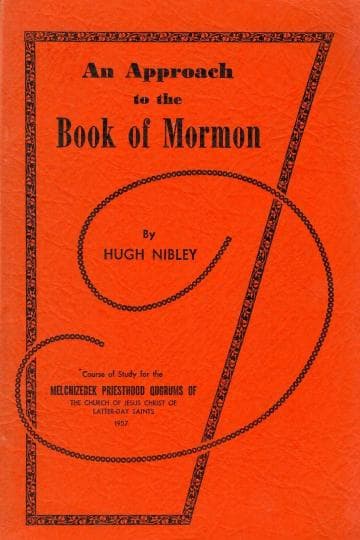Manual
30 Lessons

Abstract
Only within the last few years has it been realized that the ancient Hebrews were not the primitive agricultural people that scholars had always supposed they were, but among other things that they were always very active in trade and commerce. Their commercial contracts reached for many hundreds of miles in all directions, which meant an extensive caravan trade entailing constant dealings with the Arabs. In Lehi’s day the Arabs had suddenly become very aggressive and were pushing Jewish merchants out of their favored positions in the deserts and towns of the north. To carry on large-scale mercantile activities with distant places it was necessary for merchants to have certain personal and official connections in the cities in which they did business; here we mention the nature of such connections. Jewish merchants were very active in Arabia in Lehi’s day, diligently spreading their religion wherever they went, and settling down not only as tradesmen in the towns but as permanent cultivators and colonizers in the open country. Lehi’s activity in this regard is more or less typical, and closely resembles that of his predecessor Jonadab ben Rekhab.
Manual
30 Lessons
Items in the BMC Archive are made publicly available for non-commercial, private use. Inclusion within the BMC Archive does not imply endorsement. Items do not represent the official views of The Church of Jesus Christ of Latter-day Saints or of Book of Mormon Central.